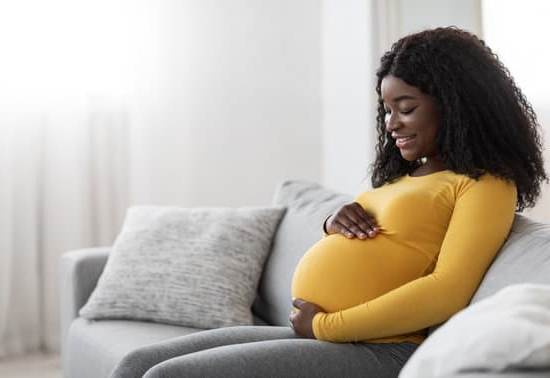How soon can you test positive for pregnancy is a question many women have when they suspect they may be expecting. Understanding the early signs of pregnancy and knowing how soon you can detect it through a pregnancy test is crucial in confirming this life-changing event.
Recognizing the earliest indicators of pregnancy, such as missed periods, nausea, breast tenderness, and fatigue, can prompt women to take a pregnancy test. The timing of when a woman can test positive for pregnancy plays a vital role in providing clarity during this uncertain period.
This article delves into the importance of knowing how soon you can test positive for pregnancy, offering insights into how pregnancy tests work, factors that influence HCG detection levels, comparisons between chemical and digital tests, as well as advice on accurate home testing methods. By empowering women with knowledge about early pregnancy testing, we aim to provide reassurance and support during this significant phase in their lives.
Importance of Knowing How Soon Can You Test Positive for Pregnancy
Knowing how soon you can test positive for pregnancy is crucial information for many women who are trying to conceive or suspect they may be pregnant. Being able to detect a pregnancy as early as possible allows for proper prenatal care to be initiated sooner, which can ultimately lead to better outcomes for both mother and baby. Understanding the importance of timing in pregnancy testing can also help alleviate anxiety and uncertainty during the waiting period.
The timing of when you can test positive for pregnancy largely depends on the sensitivity of the pregnancy test being used and how soon implantation occurs. Generally, most home pregnancy tests can detect the hormone hCG (human chorionic gonadotropin) in urine about 6-12 days after conception. This means that some women may be able to get a positive result even before their missed period, while others may need to wait a bit longer for accurate results.
In addition to providing early confirmation of pregnancy, knowing how soon you can test positive can also help in determining if further medical evaluation is needed. If you experience symptoms such as unusually heavy or prolonged bleeding, severe abdominal pain, or other concerning signs, it’s important to consult with a healthcare provider regardless of the results of a home pregnancy test. Early detection through testing not only confirms pregnancy but also allows for prompt medical attention if necessary.
How Pregnancy Tests Work
Pregnancy tests work by detecting the presence of human chorionic gonadotropin (HCG) in a woman’s urine or blood. HCG is a hormone that is produced by the placenta shortly after a fertilized egg attaches to the uterine lining. This hormone is what signals the body that pregnancy has occurred, and its levels increase rapidly in the early weeks of pregnancy.
Home pregnancy tests typically come in two types: strip or cassette tests and digital tests. The strip or cassette tests involve collecting a urine sample and then placing it on the test stick or in a container with the test strip. The strip will then show lines or symbols to indicate whether HCG levels are present. On the other hand, digital tests provide a simple “Pregnant” or “Not Pregnant” result on an easy-to-read screen within minutes.
The sensitivity of a pregnancy test refers to how soon after conception it can detect HCG levels in a woman’s body. Some highly sensitive tests can detect HCG levels as low as 6.5 mIU/mL, allowing for early detection just days after conception. However, most standard home pregnancy tests have a sensitivity level of around 25 mIU/mL, which means they may not accurately detect pregnancy until after a missed period.
Factors That Influence When Pregnancy Tests Can Detect HCG Levels
When it comes to determining how soon you can test positive for pregnancy, it is essential to understand the factors that can influence when pregnancy tests can detect HCG levels in your body. One of the primary factors is the sensitivity of the pregnancy test being used. Some tests are designed to detect lower levels of HCG earlier in pregnancy, while others may require higher concentrations of the hormone to turn positive.
Another crucial factor is the timing of implantation after fertilization. It usually takes about 6-12 days for the fertilized egg to implant itself into the uterine lining and start releasing HCG into your bloodstream. Therefore, testing too early after unprotected intercourse may result in a false negative result, as there may not be enough HCG present in your system yet for detection.
Additionally, individual variations in HCG production can also impact how soon you can test positive for pregnancy. Some women naturally have higher levels of HCG earlier in their pregnancies, while others may have lower levels that take longer to rise. Understanding these factors can help you choose the right time to take a pregnancy test and increase the accuracy of the results obtained.
| Factors Influencing Early Pregnancy Testing | Impact |
|---|---|
| Pregnancy Test Sensitivity | Determines when lower HCG levels can be detected |
| Timing of Implantation | Affects when HCG is released into bloodstream |
| Individual Variations in HCG Production | Influences speed at which hormone rises in different women |
Chemical vs Digital Pregnancy Tests
Chemical pregnancy tests and digital pregnancy tests are the two main types of at-home pregnancy tests available in the market. Each type has its own set of pros and cons that women should consider when choosing which one to use.
A chemical pregnancy test works by detecting the presence of human chorionic gonadotropin (HCG) hormone in urine, indicating pregnancy. These tests are typically more affordable and widely available than digital tests. However, they may require a bit more interpretation as they display lines or plus/minus signs to indicate a positive result. Some women find these results harder to read accurately, leading to confusion or doubt.
On the other hand, digital pregnancy tests provide a clear result in words such as “pregnant” or “not pregnant.” This eliminates any ambiguity that may come with interpreting line-based results from chemical tests. Digital tests are also convenient for women who prefer a straightforward answer without having to analyze faint lines. However, these tests tend to be more expensive than chemical ones and may not be as sensitive in detecting early pregnancies.
One important factor to consider when deciding between chemical and digital pregnancy tests is how soon you can test positive for pregnancy after conception. Both types rely on detecting HCG levels in urine, which typically start to rise 6-12 days after fertilization. Therefore, it is recommended to wait until after you have missed your period before taking an at-home pregnancy test for accurate results.
| Chemical Pregnancy Tests | Digital Pregnancy Tests |
|---|---|
| More affordable | Clear result in words |
| Results may require interpretation | May be more expensive |
| Influenced by HCG levels rising after conception | Likewise influenced by HCG levels post-conception |
The Most Sensitive Pregnancy Tests on the Market
When it comes to testing for pregnancy, the sensitivity of the pregnancy test you choose can make a significant difference in how soon you can detect a positive result. Technological advancements in recent years have led to the development of highly sensitive pregnancy tests that can detect even low levels of human chorionic gonadotropin (HCG) in urine. These tests are designed to provide women with earlier results, offering peace of mind or early confirmation.
Understanding Sensitivity Levels
The sensitivity level of a pregnancy test refers to the minimum amount of HCG hormone it can detect in urine. Traditional tests may have a sensitivity level of 25mIU/ml, while more sensitive tests on the market today boast levels as low as 10mIU/ml or even lower. This means that these high-sensitivity tests can potentially detect pregnancy before a missed period, offering women a chance to confirm their suspicions sooner rather than later.
Brands Offering High-Sensitivity Tests
Several reputable brands offer some of the most sensitive pregnancy tests on the market. For example, Clearblue Early Detection Pregnancy Test and First Response Early Result Pregnancy Test are known for their high sensitivity levels and ability to detect pregnancy up to six days before a missed period.
These tests provide women with an early detection window, allowing them to take necessary steps and plan accordingly based on their results. Additionally, many digital pregnancy tests now come with early detection features that display ‘Pregnant’ or ‘Not Pregnant’ results without the need for interpreting faint lines.
By opting for one of these highly sensitive pregnancy tests, women can potentially find out if they are pregnant as soon as possible after conception. However, it is essential to follow the instructions carefully and consult with a healthcare provider if there are any doubts about the results obtained. Ultimately, knowing how soon you can test positive for pregnancy will depend on the sensitivity level of the test chosen and individual factors influencing HCG levels in your body.
How Soon Can You Take a Pregnancy Test After Conception?
The answer can vary depending on a few factors, including the sensitivity of the pregnancy test being used and the levels of hCG (human chorionic gonadotropin) in the body. Here are some key points to consider when wondering how soon after conception you can take a pregnancy test:
- The earliest time to take a pregnancy test: In general, most at-home pregnancy tests claim to be able to detect hCG levels in urine about 7-10 days after conception. However, some tests on the market are more sensitive and may be able to detect lower levels of hCG even earlier.
- Timing is crucial: It’s important to remember that taking a pregnancy test too early can result in a false negative, as hCG levels might not be high enough to be detected. If you get a negative result but suspect you might still be pregnant, it’s recommended to wait a few days and retest.
- Consider your cycle length: For women with irregular menstrual cycles, determining how soon you can take a pregnancy test after conception may be more challenging. In such cases, waiting at least 2-3 weeks after suspected conception before testing might yield more accurate results.
Overall, understanding how soon you can test positive for pregnancy after conception involves knowing your body and choosing the right type of pregnancy test for your needs. Being informed about the factors that influence when hCG levels can be detected in your body will ultimately help you make an informed decision on when to take a pregnancy test for accurate results.
Early Pregnancy Symptoms to Watch Out For
Early pregnancy symptoms can vary from person to person, but there are some common signs that women may experience in the early stages of pregnancy. It is important to be aware of these symptoms so that you can recognize them and consider taking a pregnancy test. Here are some key symptoms to watch out for:
- Missed Period: One of the most well-known signs of pregnancy is a missed period. If your menstrual cycle is regular and you have missed a period, it could be a sign that you are pregnant.
- Nausea and Morning Sickness: Some women may experience nausea, commonly referred to as morning sickness, as early as two weeks after conception. This can be triggered by certain smells, foods, or even just waking up in the morning.
- Breast Changes: Another early symptom of pregnancy is changes in the breasts. You may notice tenderness, swelling, or darkening of the nipples.
It is important to note that these symptoms can also be caused by other factors such as stress or hormonal changes, so it’s always best to confirm with a pregnancy test if you suspect you may be pregnant.
Tips for Accurate Pregnancy Testing at Home
When it comes to taking a home pregnancy test, there are some tips you can follow to ensure accurate results. Here are a few guidelines to keep in mind:
- Use an early detection test: Early detection tests are designed to detect lower levels of hCG hormone in urine, which means you may get accurate results sooner.
- Follow the instructions carefully: Make sure to read and follow the instructions provided with the pregnancy test kit. Proper usage will help prevent errors in testing.
- Test first thing in the morning: The concentration of hCG hormone is usually higher in the morning urine, so testing first thing after waking up can increase the accuracy of the results.
By being aware of early pregnancy symptoms and following these tips for accurate testing at home, you can feel more confident when determining how soon you can test positive for pregnancy and take appropriate steps moving forward in your journey towards motherhood.
Tips for Accurate Pregnancy Testing at Home
When it comes to taking a pregnancy test at home, accuracy is key. Understanding the best practices for testing can help ensure reliable results and avoid any confusion or disappointment. Here are some tips to keep in mind when conducting a home pregnancy test:
Follow the Instructions Carefully
One of the most important things you can do to ensure an accurate result is to carefully read and follow the instructions provided with your pregnancy test. Each test may have specific guidelines on how to use it correctly, such as how long to wait before interpreting the result or what time of day is best for testing.
Choose the Right Timing
The timing of when you take a pregnancy test can also impact its accuracy. While some tests claim to be able to detect pregnancy before your missed period, it’s generally recommended to wait until after you have missed your period for the most reliable results. Testing too early may result in a false negative, as hCG levels may not be high enough yet to be detected.
Use First Morning Urine
For the most accurate results, many healthcare providers recommend using first-morning urine for a pregnancy test. This is because this urine tends to have higher concentrations of hCG, which can increase the likelihood of detecting a pregnancy if it is present. If this is not possible, try to limit your fluid intake and hold off on urinating for at least a few hours before testing.
By following these tips and being informed about how soon you can test positive for pregnancy, you can increase the likelihood of obtaining accurate results from a home pregnancy test. Remember that if you have any doubts or questions about your test results, it’s always best to consult with a healthcare provider for further guidance and support.
Conclusion
In conclusion, having a good understanding of how soon you can test positive for pregnancy is crucial for women who are trying to conceive or suspect they may be pregnant. By knowing when the most sensitive tests can detect the hormone hCG, women can avoid unnecessary anxiety and confusion. This knowledge empowers women to take control of their reproductive health and make informed decisions about their future.
It is essential for women to educate themselves on early signs of pregnancy and when is the best time to take a pregnancy test after conception. By being proactive in monitoring their bodies and keeping track of any symptoms, women can better prepare themselves for the possibility of pregnancy. Additionally, knowing the differences between chemical and digital pregnancy tests, as well as the pros and cons of each, can help women choose the right testing method for them.
Overall, accurate and timely pregnancy testing at home is important for many reasons – whether it’s confirming a suspected pregnancy or ruling it out. With advancements in technology offering more sensitive tests on the market, women have more options than ever before. By arming themselves with knowledge on early pregnancy testing, women can confidently navigate this exciting yet uncertain time in their lives.
Frequently Asked Questions
How Soon Will a Pregnancy Test Read Positive?
A pregnancy test can read positive as early as 7-10 days after conception, though for the most accurate results, it is recommended to wait until the first day of your missed period.
What Are the 1 Week Symptoms of Pregnancy?
The symptoms of pregnancy in the first week can vary among women but may include fatigue, slight cramping, increased basal body temperature, and mood swings. Keep in mind that these symptoms can also be caused by other factors.
How Soon After Unprotected Can I Test for Pregnancy?
If you have had unprotected sex and suspect you may be pregnant, it is best to wait at least one week after the unprotected intercourse before taking a pregnancy test. Testing too early may result in a false negative due to low levels of hCG hormone.

Welcome to my fertility blog. This is a space where I will be sharing my experiences as I navigate through the world of fertility treatments, as well as provide information and resources about fertility and pregnancy.





